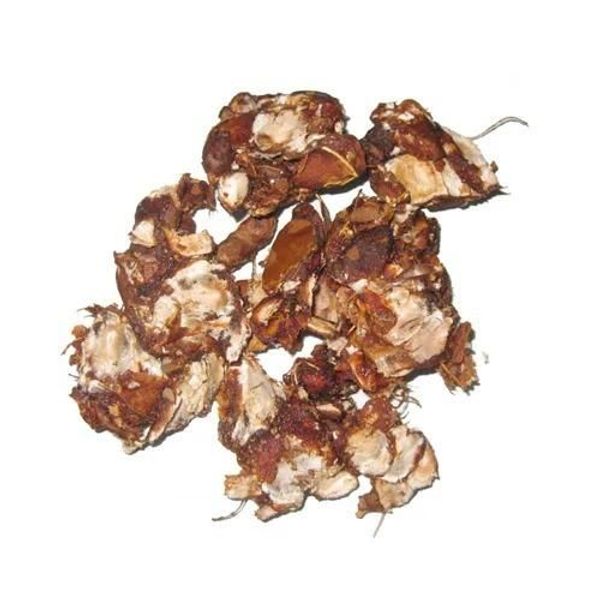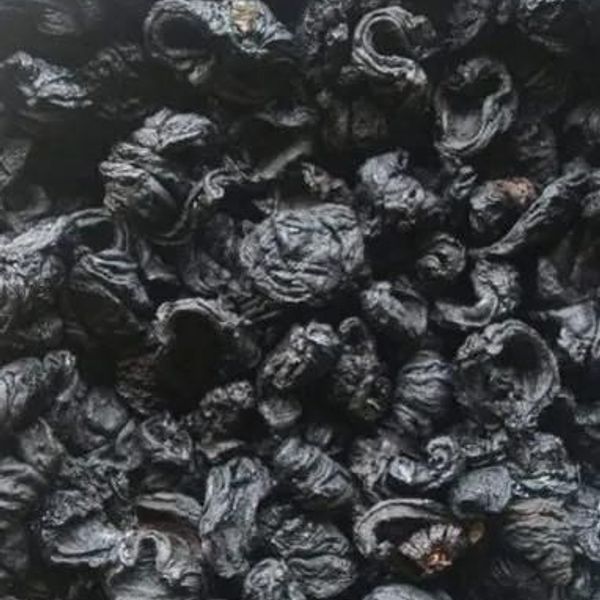Products


Dried Seedless Tamarind
Dried seedless tamarind is the fruit pulp of the tamarind tree (
Tamarindus indica
) that has been processed to remove the seeds and dried to concentrate its flavor and extend its shelf life. This tropical fruit, native to Africa, is prized for its unique sweet and sour taste and is widely used in various cuisines around the world.
Culinary uses:
Souring agent: It adds a tangy and authentic flavor to dishes, especially in South Indian and Gujarati lentil dishes, curries, and chutneys according to Kerala Naturals.
Chutneys and sauces: It's a key ingredient in many chutneys and sauces, adding a sweet and tangy element.
Marinades and glazes: The tangy flavor complements meats, tofu, and vegetables, making it ideal for marinades and glazes.
Beverages: It's used in traditional drinks like "agua de tamarindo" in Mexico and Central America.
Snacks and desserts: The unique flavor lends itself well to candies, desserts, and can be enjoyed as a healthy snack on its own.
Nutritional value:
Dried seedless tamarind is a rich source of vitamins and minerals, including vitamin C, B vitamins, iron, potassium, and magnesium.
It is also a good source of dietary fiber and antioxidants. A single cup (120 grams) of the pulp contains a significant portion of the daily value for magnesium, potassium, iron, and various B vitamins.
Health benefits:
Dried seedless tamarind may offer several health benefits due to its nutritional content. It can support digestive health, potentially contributing to regularity and relief from constipation. Its fiber, potassium, and antioxidants may benefit heart health by potentially lowering cholesterol and blood pressure. The fruit also contains compounds with anti-inflammatory and antioxidant properties. While further research is needed, studies have explored its potential in other areas such as anticancer, liver-protective, antimicrobial, and anti-diabetic effects
Tamarindus indica
) that has been processed to remove the seeds and dried to concentrate its flavor and extend its shelf life. This tropical fruit, native to Africa, is prized for its unique sweet and sour taste and is widely used in various cuisines around the world.
Culinary uses:
Souring agent: It adds a tangy and authentic flavor to dishes, especially in South Indian and Gujarati lentil dishes, curries, and chutneys according to Kerala Naturals.
Chutneys and sauces: It's a key ingredient in many chutneys and sauces, adding a sweet and tangy element.
Marinades and glazes: The tangy flavor complements meats, tofu, and vegetables, making it ideal for marinades and glazes.
Beverages: It's used in traditional drinks like "agua de tamarindo" in Mexico and Central America.
Snacks and desserts: The unique flavor lends itself well to candies, desserts, and can be enjoyed as a healthy snack on its own.
Nutritional value:
Dried seedless tamarind is a rich source of vitamins and minerals, including vitamin C, B vitamins, iron, potassium, and magnesium.
It is also a good source of dietary fiber and antioxidants. A single cup (120 grams) of the pulp contains a significant portion of the daily value for magnesium, potassium, iron, and various B vitamins.
Health benefits:
Dried seedless tamarind may offer several health benefits due to its nutritional content. It can support digestive health, potentially contributing to regularity and relief from constipation. Its fiber, potassium, and antioxidants may benefit heart health by potentially lowering cholesterol and blood pressure. The fruit also contains compounds with anti-inflammatory and antioxidant properties. While further research is needed, studies have explored its potential in other areas such as anticancer, liver-protective, antimicrobial, and anti-diabetic effects
Citron
스트립, 칩
건조
Origin
인도
Production Capacity
20 /
+ 1


Dried Malabar Tamarind or Kudampuli (Garcinia Cambogia)
Kudampuli, also known as Malabar Tamarind or Garcinia Cambogia (scientific name: Garcinia gummi-gutta), is a popular spice and traditional medicine ingredient, particularly in South India and Southeast Asia. The fruit's rind is used both culinarily and for its potential health benefits, especially due to its high content of Hydroxycitric Acid.
Key features:
Culinary Use: Kudampuli is a staple in Kerala cuisine, adding a distinct sour and tangy flavor to dishes like fish curries, rasams, and chutneys. It's used as a natural souring agent, often replacing ingredients like tamarind or tomatoes.
Health Benefits: Kudampuli is recognized in traditional medicine, particularly Ayurveda, for various health benefits attributed to its HCA content, including:
Weight Management: HCA may help suppress appetite and inhibit the conversion of carbohydrates into fat.
Digestive Aid: It can help alleviate digestive issues, treat gastric ulcers, and exhibit antibacterial and antiparasitic effects.
Antioxidant Properties: Kudampuli contains antioxidants that combat free radicals and oxidative stress.
Cholesterol Control: Studies suggest it may positively impact cholesterol levels.
Blood Sugar Management: Preliminary research suggests a potential role in blood sugar regulation.
Other Benefits: Potential benefits extend to reducing inflammation, boosting metabolism, and potentially offering relief from symptoms of rheumatoid arthritis.
Key features:
Culinary Use: Kudampuli is a staple in Kerala cuisine, adding a distinct sour and tangy flavor to dishes like fish curries, rasams, and chutneys. It's used as a natural souring agent, often replacing ingredients like tamarind or tomatoes.
Health Benefits: Kudampuli is recognized in traditional medicine, particularly Ayurveda, for various health benefits attributed to its HCA content, including:
Weight Management: HCA may help suppress appetite and inhibit the conversion of carbohydrates into fat.
Digestive Aid: It can help alleviate digestive issues, treat gastric ulcers, and exhibit antibacterial and antiparasitic effects.
Antioxidant Properties: Kudampuli contains antioxidants that combat free radicals and oxidative stress.
Cholesterol Control: Studies suggest it may positively impact cholesterol levels.
Blood Sugar Management: Preliminary research suggests a potential role in blood sugar regulation.
Other Benefits: Potential benefits extend to reducing inflammation, boosting metabolism, and potentially offering relief from symptoms of rheumatoid arthritis.
Citron
껍질 벗김, 칩
건조
Origin
인도
Production Capacity
20 /
+ 1
Recommended suppliers for you
By clicking “Accept Cookies,” I agree to provide cookies for statistical and personalized preference purposes. To learn more about our cookies, please read our Privacy Policy.
